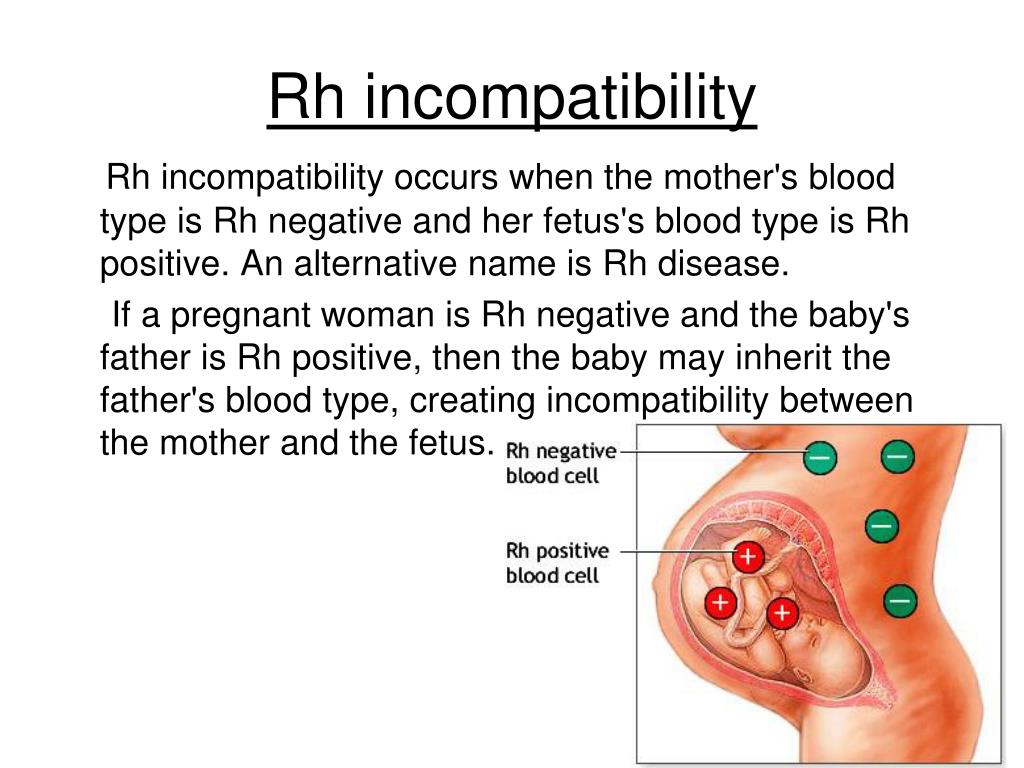

If an unborn baby does develop rhesus disease, treatment depends on how severe it is.

The pregnancy will be monitored more closely than usual, as will the baby after birth. If a woman has developed anti-D antibodies in a previous pregnancy (she's already sensitised) then these immunoglobulin injections don't help.

The anti-D injection is safe for both the mother and the baby. The only way to find out if a baby is RhD positive is after they are born and the umbilical blood can be tested. You can also have the injection after the baby has been born and tests confirm your baby is RhD positive. It can also be given at anytime if there is concern a sensitising event has happened. The injection is offered at to rhesus negative women who have rhesus positive partners at 28 and 34 weeks of pregnancy. All women are offered blood tests as part of their antenatal screening to determine whether their blood is RhD negative or positive. Rhesus disease is uncommon these days because it can usually be prevented using injections of a medication called 'anti-D immunoglobulin'. This can lead to anaemia, jaundice and brain damage in the baby. These antibodies can cross the placenta and destroy the baby’s blood cells, leading to a condition called 'rhesus disease', or 'haemolytic disease of the newborn'.

These blood types are further identified as being either positive or negative. You inherit your blood group from a mix of your parents' genes. If you’re Rh-negative and you’ve been pregnant before but didn’t get this shot, another routine prenatal blood test will tell you whether you already have the antibodies that attack Rh-positive blood.Everybody has one of 4 blood types (A, B, AB or O). If that happens, you’ll become Rh-sensitized - and the next time you’re pregnant with an Rh-positive baby, those antibodies may attack your baby’s blood. But if your baby’s blood leaks into yours (as it can at certain times during pregnancy and at birth), your immune system will start to produce antibodies against this Rh-positive blood. You probably won’t know this for sure until the baby is born, but in most cases you have to assume it, just to be safe.īeing Rh-incompatible isn’t likely to harm you or your baby during this pregnancy, if it’s your first. If you’re Rh-negative, there’s a good chance that your blood is incompatible with your baby’s blood, which is likely to be Rh-positive. (About 85 percent of Caucasians are Rh-positive. If you do have the Rh factor, as most people do, your status is Rh-positive. Early in your pregnancy your blood will be tested to determine your blood type and your Rh status - that is, whether you have the Rh (Rhesus) factor, a protein that most people have on the surface of their red blood cells.


 0 kommentar(er)
0 kommentar(er)
